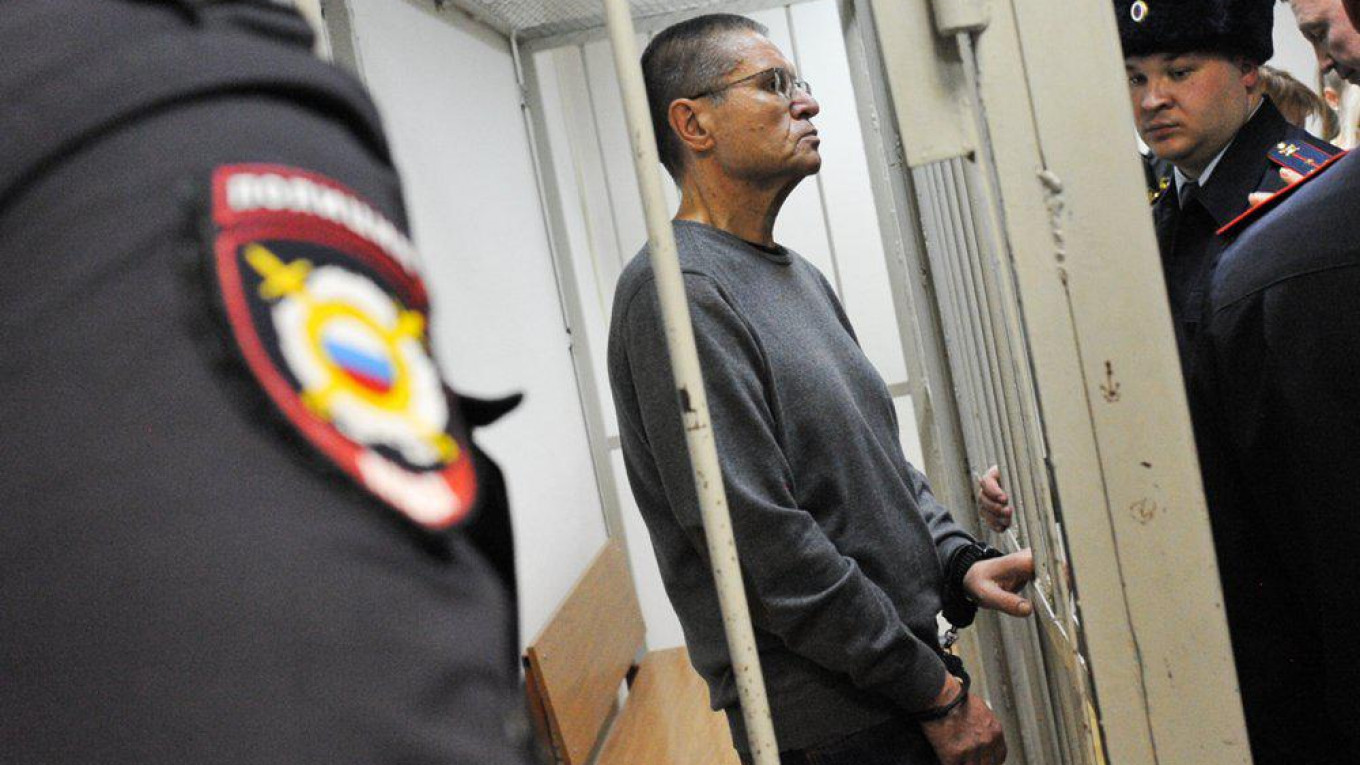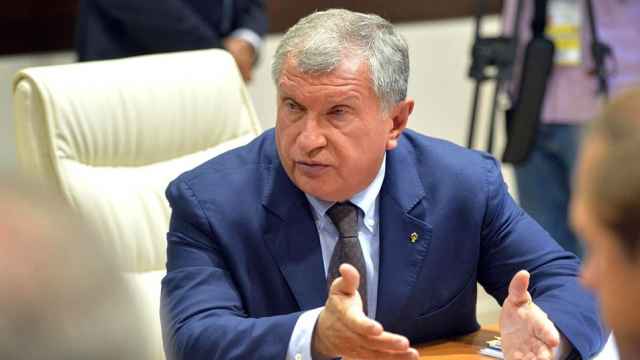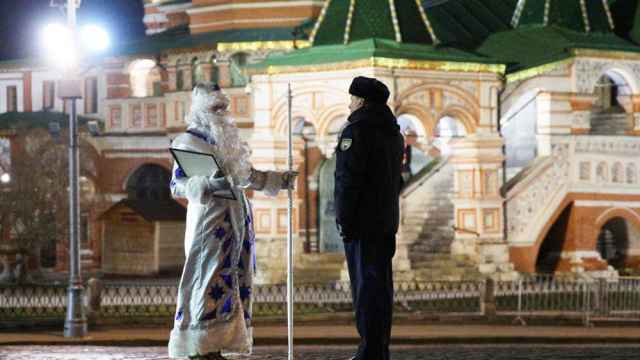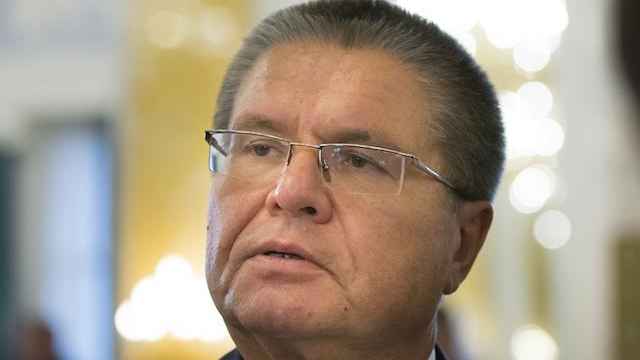The arrest of Alexei Ulyukayev, the first of a serving minister since Stalin, sent tremors through Russia’s elite.
His eight-year sentence on questionable charges after a trial in which his persecutor, Igor Sechin, treated the court with condescending contempt, turned them into shock waves.
What the case demonstrates is that Putinism has reached its ancien regime stage: It is self-indulgent, vicious — and doomed.
Ulyukayev was charged with extorting a $2-million bribe from Sechin in return for greenlighting state oil giant Rosneft’s takeover of rival oil company Bashneft.
The implausibility of a middle-ranking minister holding Rosneft’s formidable chairman, a close ally of Vladimir Putin, to ransom counted for nothing. That the ‘evidence’ presented was threadbare and open to question, even less. That Sechin repeatedly refused to face cross-examination, claiming to be too busy — not at all.
It is not wholly impossible that Ulyukayev expected some kind of payoff. Russia is, after all, a kleptocracy: Offices are there to enrich their holders. But claims of extortion seem dubious. Rather, this had everything to do with Sechin and the political dynamics of late Putinism.
The notoriously inefficient Rosneft in many ways operates as a pyramid scheme.
Sechin, one of the big beasts in Russian business and political circles, has been able to ensure a series of more productive enterprises — like Bashneft — can be devoured to stave off consequences. Its strategy is not correction but cannibalism.
Now, though, prey is less plentiful and the economy is tighter, so Sechin’s tactics have become increasingly controversial.
There may be some bad blood between Sechin and Ulyukayev, but primarily this was driven by the former’s need to reassert his authority: Not simply by taking down Ulyukayev, but by doing so in such a blatantly, even insultingly obvious way.
In mafia terms, this was a “cowboying” — a gratuitously bloody murder meant to ensure the lesson was not lost on anyone else.
Despite Sechin’s power, this was a gamble. He was deliberately and unequivocally challenging the etiquette of “high Putinism,” when intra-elite disputes were discouraged and Putin retained the role of judge and broker.
For all its flaws, Putinism had a kind of kleptocratic egalitarianism. The boss had clear favorites, but there were ample opportunities for others to rise and prosper, too
Would the Kremlin regard this as a step too far? In the past, after all, Putin has let even favorites fall if they became liabilities or appeared to be insufficiently deferential.
But Putin deliberately refused to get involved. At first, this raised hopes in some quarters that, like Russian Railways boss Vladimir Yakunin, Sechin had been deemed disposable — or at least in need of a lesson.
Then Ulyukayev was found guilty, receiving not a token or suspended sentence (like other insiders sacrificed in the name of Kremlin PR or elite infighting), but a substantial custodial term.
This marks the real start of ancien regime Putinism. For all its flaws, Putinism had a kind of kleptocratic egalitarianism. The boss had clear favorites, but there were ample opportunities for others to rise and prosper, too. As long as they were loyal and relatively efficient, they would be OK.
Putin’s favorites could get away with being more corrupt and less competent — but not both at the same time, and not at the expense of the system as a whole. This no longer applies.
This is not about the dominance of the so-called ‘siloviki’ affiliated with the security services over liberals (Sechin may once have been a spook, but they certainly no longer think of him as one of their own).
Rather, this is a natural, if depressing, process in the senescence of regimes. Early energies and meritocratic impulses give way to a determination of the have-mosts to protect their interests against not just the have-nots but even the have-muches.
Competence, observation of the forms of intra-elite relations, and long-term systemic impacts matter less than short-term cronyism and the boss’s desire for a quiet life. These days Putin appears to have little appetite for his job.
This is the decadence that precedes the ends of empire. It may not be obvious, it may not be immediate, but Putin is fiddling while the Russia he has committed himself to building, begins to burn.
Mark Galeotti is a senior researcher at the Institute of International Relations Prague and coordinator of its Center for European Security.
The views and opinions expressed in opinion pieces do not necessarily reflect the position of The Moscow Times.
A Message from The Moscow Times:
Dear readers,
We are facing unprecedented challenges. Russia's Prosecutor General's Office has designated The Moscow Times as an "undesirable" organization, criminalizing our work and putting our staff at risk of prosecution. This follows our earlier unjust labeling as a "foreign agent."
These actions are direct attempts to silence independent journalism in Russia. The authorities claim our work "discredits the decisions of the Russian leadership." We see things differently: we strive to provide accurate, unbiased reporting on Russia.
We, the journalists of The Moscow Times, refuse to be silenced. But to continue our work, we need your help.
Your support, no matter how small, makes a world of difference. If you can, please support us monthly starting from just $2. It's quick to set up, and every contribution makes a significant impact.
By supporting The Moscow Times, you're defending open, independent journalism in the face of repression. Thank you for standing with us.
Remind me later.








